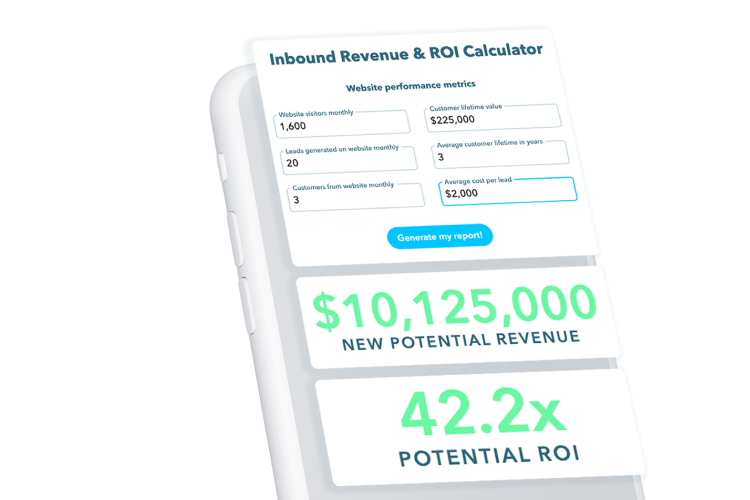 1,588 views
1,588 views 2672 Views
2672 Views  4 min read
4 min readIn a fast-paced market of software technology, customer acquisition is critical to survival. One of the most effective and affordable ways to get new customers is through a new technique call “inbound” marketing and sales. This includes creating and leveraging informational and targeted content to bring people to your site, nurturing them into leads, and turning them into customers. Inbound marketing and sales has been proven to generate better outcomes compared to traditional methods like print marketing, television ads, email blasts, cold calls, trade shows, and buying lists. According to current Hubspot research, 92% of B2B companies said they got even more web traffic and leads using Inbound strategies. Getting new clinics, hospitals, or health system accounts take time and effort, and the Inbound method could help engage your key decision-makers and influencers. Here are some leading software technology customer acquisition strategies to make the most out of the Inbound approach.
The first step in the direction of customer acquisition is identifying your ideal customer. Take some time to create buyer personas (imaginary depictions of your ideal customer) like ‘Private Practitioner Peter’ or ‘Medical Director Deitrick’. Do some research to find out even more about them. What are their roles in their jobs? What are their objectives? What obstacles do they face? How do they make decisions? Where do they get their information? Having this information will make it easier to create targeted content. You can then either develop a comprehensive Inbound strategy or look for the assistance of specialists. An effective strategy includes clear buyer persona accounts, their buyer’s journey, SEO research, content building, social media, and lead nurturing.
Producing high-quality content regularly will help keep your target market engaged and develop you as an authority in the market. Optimizing your content using keywords to enhance your search engine position will make it easier for people to find you online. There are many types of content you could create to help software technology customer acquisition. Blogs: Research by Hubspot found that companies that post more than 16 blogs every month have 3.5 times more web traffic compared to those that post four or fewer times a month. Your blogs should cover topics that will be useful for your target market. Develop a blogging schedule and stick to it. If you can’t write the posts, work with a freelance writer or a company that concentrates on content development. Webinars: A webinar provides you the chance to share your knowledge with leads in an interactive discussion. You can also respond to questions in real time at the end of the webinar. To get even more about of it, consider welcoming an influencer or guest speaker. eBook: Long-form content like ebooks are great for covering topics from your blogs in a much more comprehensive way. This will help develop you as a thought leader in the industry and win the trust of your target market. You can create a landing page where site visitors can give their contact information in return for your ebook. You can also use their emails to nurture the new leads until they convert into buyers. Case studies: Most people look for evidence of your product or service’s advantages before making a buying decision. They want to know what they are buying will meet their needs. You can also consider developing case studies showcasing your clients’ experiences. State how your service or produced helped them and what outcomes were accomplished. For example, you can say that customers boosted their sales by 70% in six months.
A call-to-action (CTA) is a button or link that get site visitors to take a desired action. Site visitors need to recognize just what they will get when they click the CTA, which will connect to a landing page. “Download the ebook now” and “join our newsletter” are examples of detailed CTAs that develop a feeling of urgency and give site visitors the info they need to take action. Ask your site developers to place the CTA “above the fold” to make sure visitors see without having to scroll. Make sure all buttons are big enough so they can be seen both on mobile and desktop. If your landing page is long, you might have a second call to action in the middle, and one at the end.
The landing page is one of the most neglected parts of the software technology customer acquisition process. This is the page where your site visitors come after clicking your call-to-action. Like a contact us, signup, or product page. Make sure the landing page has an engaging headline, a solid value proposition, and social proof. It’s also a good idea to have an exciting photo and a CTA for more from your B2B SaaS website. A study by Switch Video found that having a demo video on your landing page can increase your conversions by 10-20%. You could also take screenshots of your content. Use keywords will help you bring in organic traffic and remove navigation so the visitor stays on the page. Use color psychology to entice visitors to act.
Getting new customers can seem like a difficult job when your resources are restricted and traditional marketing and sales techniques fail you. With Inbound marketing and sales, you can establish strategies and build sustainable success for getting new site visitors, potential customers, and then customers. We’ve worked with many CEOs and directors to integrate Inbound into their marketing and sales methods. Don’t hesitate to book your free strategy session to get insight and strategies to bring in new B2B SaaS customers before your competition!
